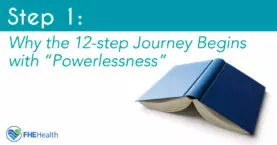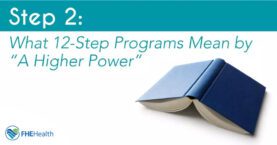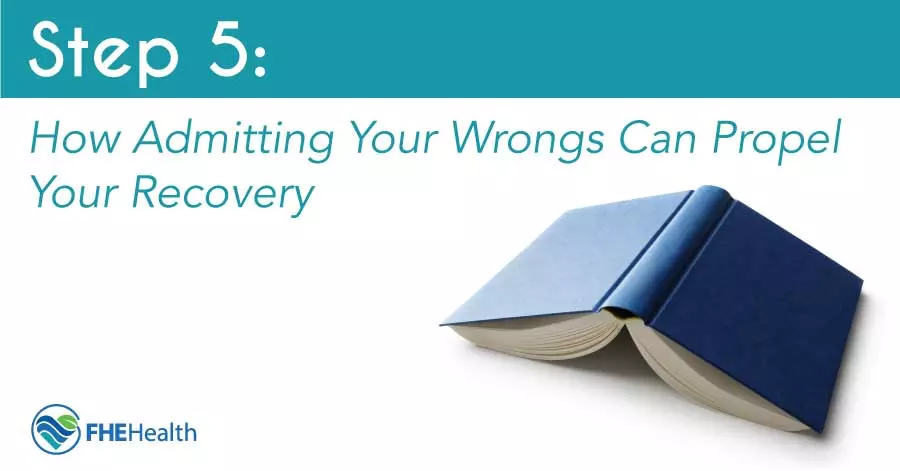
|
|
Step 5 AA instructs individuals to admit their wrongs to themselves, a higher power and another person. Take a look at these Step 5 examples for guidance.
In the Alcoholics Anonymous 12-Step recovery program, the first step is admitting you have a problem. The further steps help you understand the consequences of that problem and find a way to overcome it. Excessive alcohol use leads to more than 140,000 deaths every year in the United States, so it’s important to stick with the program and recover fully.
Often called the “confession” step, Step 5 AA instructs individuals to “admit to a higher power (according to beliefs), to ourselves, and to another human being the exact nature of our wrong.” Step 5 AA is where the program turns from taking stock of the past to starting to build a new, healthier future, free from addiction.
Step 4 and Step 5 AA are connected in a deep way. In the 4th Step, you undergo the often painful process of confronting and documenting your wrongs internally. This is a crucial step in a process that will eventually allow you to put right the wrongs you’ve committed. In the 5th Step of AA, you sit down with one or more other people and confess everything you’ve documented to get all of it out in the open, allowing you to start afresh.
Here’s a breakdown to answer your questions about Step 5 AA.
What Does “Admitting Your Wrongs” Mean?
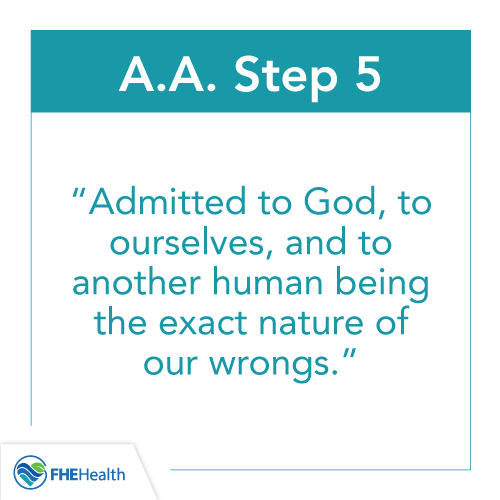
In order to understand the value of Step 5 AA, you first have to understand Step 4. While it’s explained in more depth here, Step 4 revolves around the concept of Taking Moral Inventory. This means exploring your past, especially as it relates to your addiction, and uncovering the actions, inactions and mistakes that sustained your addiction.
Addiction is often rooted in a person’s negative thinking. Mistakes and failures in their lives can contribute to a negative view of themselves. The theory behind Steps 4 and 5 of the 12-Step Process of Recovery is that a person can’t truly find lasting recovery without bringing all their mistakes, missteps and moral failures to the forefront of their own mind in Step 4 before sharing them in Step 5. AA’s goal here is to spark a sort of emotional catharsis, from which a person can start a new journey with a clean slate and nothing to hide.
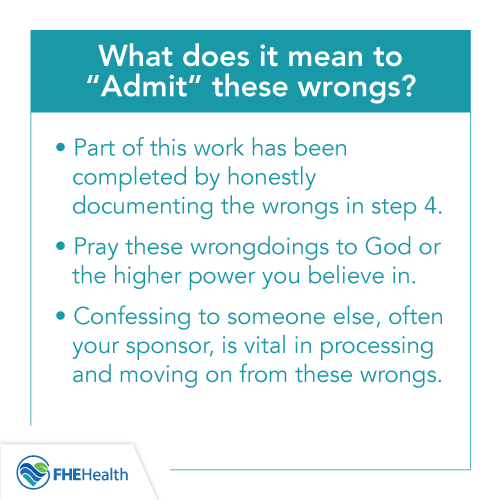 There are three parts to Step 5 in AA:
There are three parts to Step 5 in AA: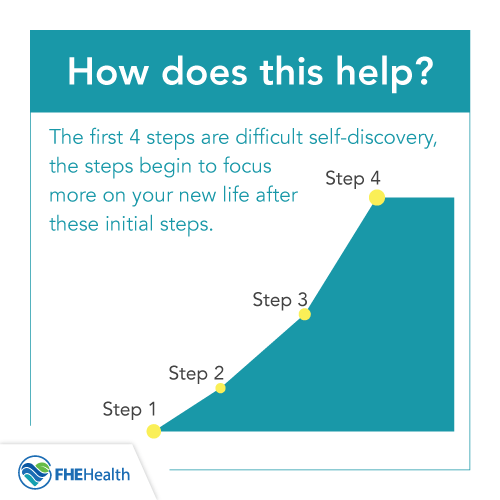 If we think of the
If we think of the 